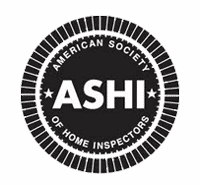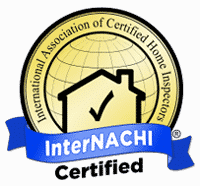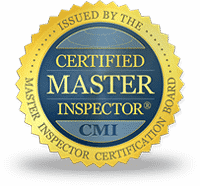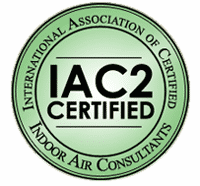Frequently Asked Questions
At InspectPros, Inc., we offer certified property inspections in Ventura, CA, and beyond. As an experienced multi-inspector firm, we have inspected more than 30,000 homes and businesses, routinely going above and beyond industry standards. Review the answers to some common questions below, and contact us at (805) 484-9711 for additional information. If you’re ready to get started, schedule an inspection online now.
Since 1992, our talented team has provided comprehensive home inspections, commercial property assessments, and specialty inspections in Ventura and the surrounding areas, including Santa Barbara and Thousand Oaks.
It is an objective visual examination and professional hands-on assessment of a home’s physical structure and systems, from the roof to the foundation. Think of it as a checkup for your house. If problems or potential issues are found, the inspector may recommend further evaluation or necessary repairs.
Inspectors examine the heating system; central air conditioning system (if applicable); interior plumbing and electrical systems; roof, attic, and visible insulation; walls, ceilings, floors, windows, and doors; foundation and basement (if applicable); and the structure as a whole. At InspectPros, our inspection reports include a numbered summary for easy reference, detailed photographs, and video to provide insight that words and photos may not be able to capture alone.
Costs vary depending on the size and age of the property, particular features of the structure, and the presence of any non-standard amenities such as a pool or spa. Whatever the fee, don’t let cost be a factor in your decision to have a professional inspection or in the selection of your inspector. The insight gained from an inspection is well worth the cost — saving money and potential headaches in the long run — and the lowest-priced inspector is not necessarily a bargain.
Check the company’s qualifications, reputation in the local community, and professional affiliations to get a feel for its trustworthiness. You can learn more about the benefits of choosing InspectPros on our “About” page.
A typical inspection lasts two to three hours for an average single-family home. The time can vary depending on square footage, age, number of systems and pools, spas or other ancillary items. Using a multi-inspector professional, like InspectPros, ensures an efficient and thorough inspection without increasing the amount of time needed to assess the home.
A home inspector is typically contacted right after the contract or purchase agreement has been signed, and the assessment is often scheduled within a few days. Reports are generally sent out within 24 hours after the inspection. They can be mailed, emailed or delivered directly to your Realtor’s office. Our process covers what you can expect when you hire InspectPros.
Although is not necessary for you to be there, it is recommended. It is common for clients to come during the last hour of the inspection to review the findings onsite. This ensures you will be able to observe the inspector and ask questions as you learn about the condition of the home, how its systems work, and how to maintain it. You will also find the written report easier to understand if you’ve seen the property first-hand.
The purchase of a home is probably the largest, single investment you will ever make. You should learn as much as you can about the condition of the property and the need for any major repairs before you buy, so that you can minimize unpleasant surprises and difficulties afterwards, and have the confidence you are making a sound investment.
Of course, a home inspection also points out the positive aspects of a home, as well as the maintenance that will be necessary to keep it in good shape. After the inspection, you will have a much clearer understanding of the property you are about to purchase.
If you are already a homeowner, an inspection may be used to identify potential problems in the making. It also could be an opportunity to learn preventive measures that might help you avoid costly future repairs. And if you are planning to sell your home, you may wish to have an inspection prior to listing it so you can address any concerns that may deter buyers or force you to lower your asking price. This will give you a better understanding of conditions which may be discovered by the buyer’s inspector, and an opportunity to make repairs that will put the house in better selling condition.
Even the most experienced homeowner lacks the knowledge and expertise of a professional inspector who has evaluated hundreds, perhaps thousands, of homes in his or her career. Qualified inspectors are familiar with the many elements of home construction, as well and proper installation and maintenance. He or she understands how the home’s systems and components are intended to function together, as well as how and why they fail. In addition, a professional, certified inspector like those at InspectPros is typically affiliated with industry organizations to stay on top of ever-changing codes and requirements.
Above all, most buyers find it very difficult to remain completely objective and unemotional about the house they really want, and this may affect their judgment. For the most accurate information, it is best to obtain an impartial third-party opinion from an expert.
No. A professional home inspection is an examination of the current condition of your prospective home. It is not an appraisal, which determines market value, or a municipal inspection, which verifies local code compliance. A home inspector, therefore, will not pass or fail a house, but rather objectively describe its physical condition and indicate what may need to be fixed, replaced, or improved.
No property is perfect. If the inspector identifies problems, it doesn’t necessarily mean you shouldn’t buy the house, only that you will know in advance what to expect. If your budget is tight, or if you don’t wish to become involved in future repair work, this information will be extremely important to you.
Depending on the findings of the report, you may discover the problems or concerns outlined are issues you can correct yourself. Not sure where to start? Browse our helpful resources section, which includes DIY videos spotlighting home improvement items you may be able to handle on your own.
Definitely. Now you can complete your home purchase with your eyes open as to the condition of the property and all of its equipment and systems. The report will recommend upgrades and include information on maintenance. You will also have learned many things about your new home from the inspector’s written report, which you’ll want to keep for future reference.
The best source is a friend, or perhaps a business acquaintance, who has been satisfied with and can recommend an inspector they have previously used. Real estate agents are also generally familiar with the service and should be able to provide you with information and recommendations.
Whatever your referral source, you will want to make sure that the home inspector is a member of the California Real Estate Inspection Association (CREIA) in order to be certain of his or her professional qualifications, experience, and business ethics. A list of CREIA members in your area is available upon request from the Association’s headquarters.
The California Real Estate Inspection Association (CREIA) is the leading non-profit professional association for independent home inspectors in the state. Since its formation in 1976, CREIA’s “Standards of Practice” has served as the home inspector’s performance guideline, universally recognized and accepted by professional and government authorities alike.
CREIA’s professional Code of Ethics prohibits members from engaging in conflict of interest activities that might compromise their objectivity. This is the consumer’s assurance that the inspector will not, for example, use the inspection to solicit or refer repair work.
In order to assist home inspectors in furthering their education, CREIA sponsors a number of technical seminars and workshops throughout the year. CREIA also serves as a public interest group by providing accurate and helpful consumer information to home buyers and sellers.






